Nursery Coffee Morning
Please join us at 9am on Tuesday 11 November for our Nursery coffee morning. It’s a great chance to find out more about the learning that will be happening in Nursery over the next half term. After you’ve dropped your child off at Nursery, make your way to the Hub. We hope to see you there!
Colour and light!
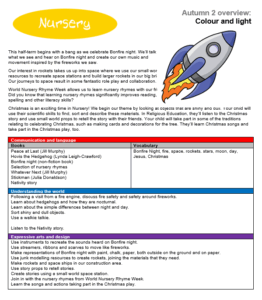
Light and dark!
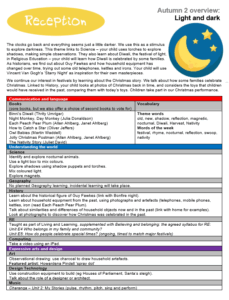
Applying for a Reception school place 2026
Applications for a Reception place for September 2026 can be made from 01 November 2025 until 15 January 2026.
You will receive your child’s school offer on National Offer Day, April 16, 2026. Ensure you use your child’s permanent address when applying, as this is a key factor in the admissions process.
If you’d like to come and look around our school, the next open sessions are on Tuesday 04 November at 6pm and Friday 21 November at 1.30pm. No need to book just turn up!
Please remember that you still need to apply for a Reception place even if your child attends Scholes (Elmet) Nursery.
Training day – Arty Ideas!
We thought you’d enjoy hearing a little about what went on during our recent teacher training day! Part of the day was dedicated to developing our art knowledge and skills with our resident art teacher, Mrs Boulton.
Teachers got hands-on with paints, pastels and even soap! There was plenty of colour, laughter, and even a bit of friendly competition as we experimented with new techniques and ideas for upcoming art lessons.
The rest of the day focussed on other important areas too, including maths and inclusion. It was a full, productive day – and we left feeling ready and excited for the next half-term!
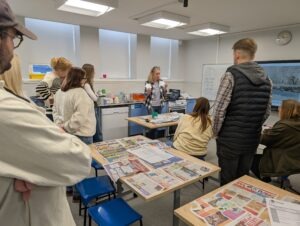
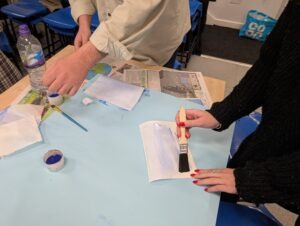
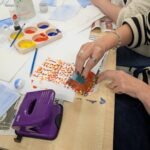
Writing: journalistic writing
In writing, we have been writing newspaper reports.
The purpose of a news report is to tell the reader information about something that has happened.
We read a twisted version of the traditional tale The Three Little Pigs called The Three Little Wolves and the Big Bad Pig. We thought about how the original tale had been twisted and how we could twist our own version.
We thought about what a good newspaper looks like. The children took on the role of a journalist adding catchy headlines and informative sub-headings.
Help at home: ask your children to tell you the story of the three little wolves and the big bad pig. Can they do it like a news reporter?
Phase 3,4 – Geography

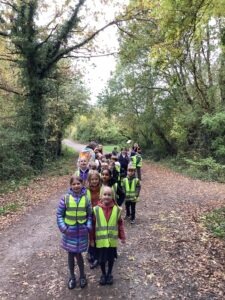
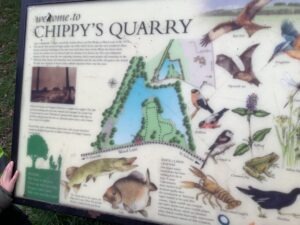
First half term is over
What a fantastic first half term we’ve had in 1A. I am so impressed with all of the children. They have all settled well into their new class well and have shown fantastic learning behaviour and eagerness to learn. I am immensely proud and can’t wait for the rest of the year ahead.
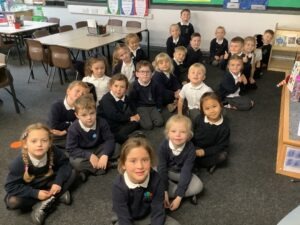
Have a well deserved break and I look forward to starting Autumn term 2 soon.
Miss Young
Wonderful writing!
This week, we’ve been completing a piece of writing based on ‘The eye of the storm’. This is a video that captures an airship entering into the eye of a storm and a very mysterious character piloting it. The children used the video as inspiration to write their own setting and character description pieces. They had to create a particular mood, use expanded noun phrases and even include some figurative language.

Help at home: Watch the video again with your child. Ask them about the vocabulary they included in their descriptions.
Yorkshire Sculpture Park
What a fantastic day out! The Yorkshire Sculpture Park trip was brilliant. All staff commented that the children’s manners, levels of respect and interest in the workshops was fantastic. This trip will help to informour art topic next half term and support our writing.
Help at Home: Talk to your child about their favourite piece of art at the park. What is it made from? What did it make you think? Who was the artist? Who might want to conduct some research into the artist’s inspiration for the piece.





















